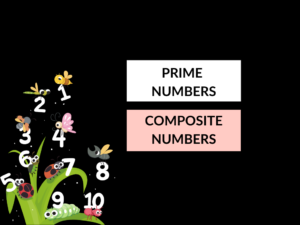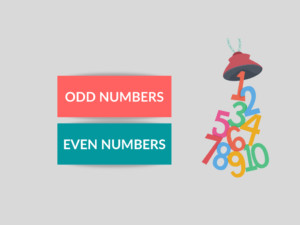HCF and LCM: Understanding the Differences
Are you confused about the concepts of HCF (Highest Common Factor) and LCM (Least Common Multiple)? Don’t worry! In this article, we will break down these mathematical terms, provide examples for better understanding, discuss their uses, and highlight the key differences between them. By the end, you’ll have a clear understanding of HCF and LCM, and how they differ from each other.
What is HCF?
The Highest Common Factor, also known as the Greatest Common Divisor, is the largest number that can divide two or more numbers without leaving a remainder. HCF is a fundamental concept in mathematics, and it finds its application in various fields, including prime factorization, simplification of fractions, and solving problems related to divisibility.
Examples of HCF
Let’s understand HCF with a couple of examples:
- Find the HCF of 18 and 24.
- Find the HCF of 36, 48, and 60.
Factors of 18: 1, 2, 3, 6, 9, 18
Factors of 24: 1, 2, 3, 4, 6, 8, 12, 24
The common factors of 18 and 24 are 1, 2, 3, and 6. Therefore, the HCF of 18 and 24 is 6.
Factors of 36: 1, 2, 3, 4, 6, 9, 12, 18, 36
Factors of 48: 1, 2, 3, 4, 6, 8, 12, 16, 24, 48
Factors of 60: 1, 2, 3, 4, 5, 6, 10, 12, 15, 20, 30, 60
The common factors of 36, 48, and 60 are 1, 2, 3, 4, 6, 12. Therefore, the HCF of these numbers is 12.
Uses of HCF
HCF is used in a variety of ways, including:
- Simplifying fractions: HCF is used to reduce fractions to their simplest form. By dividing both the numerator and denominator by their HCF, we obtain an equivalent fraction in its lowest terms.
- Comparing fractions: HCF allows us to compare fractions by finding a common denominator.
- Divisibility testing: HCF can help determine if one number is divisible by another.
- Common factor finding: HCF is required to find common factors between multiple numbers.
- Finding the least common multiple (LCM): HCF is used in calculating the LCM of multiple numbers.
What is LCM?
The Least Common Multiple is the smallest positive integer that is divisible by two or more numbers without leaving a remainder. LCM also plays a crucial role in various mathematical operations, including fraction addition and subtraction, finding equivalent fractions, and solving problems related to finding the next occurrence of an event.
Examples of LCM
Let’s clarify the concept of LCM through a couple of examples:
- Find the LCM of 8 and 12.
- Find the LCM of 5, 6, and 10.
Multiples of 8: 8, 16, 24, 32, 40, 48, 56, 64, 72, 80…
Multiples of 12: 12, 24, 36, 48, 60, 72, 84, 96…
The first common multiple of 8 and 12 is 24, making it the LCM.
Multiples of 5: 5, 10, 15, 20, 25, 30, 35, 40, 45, 50…
Multiples of 6: 6, 12, 18, 24, 30, 36, 42, 48, 54, 60…
Multiples of 10: 10, 20, 30, 40, 50, 60, 70, 80, 90, 100…
The first common multiple of 5, 6, and 10 is 30, making it the LCM.
Uses of LCM
The LCM has several practical applications, including:
- Adding and subtracting fractions: LCM helps in finding a common denominator when adding or subtracting fractions with different denominators.
- Calculating time intervals: When working with multiple time intervals, LCM can be used to find the time it takes for multiple events to reoccur together.
- Preparing a schedule or timetable: LCM is used to determine the least amount of time that covers all individual tasks or events.
- Calculating the number of packets in a container: LCM helps in calculating the minimum number of packets required to fill a container of a certain size.
The Differences between HCF and LCM
Now that we have understood the concepts of HCF and LCM, let’s explore their differences through the following table:
| Difference Area | HCF | LCM |
|---|---|---|
| Definition | The largest number that divides two or more numbers without leaving a remainder. | The smallest number that is divisible by two or more numbers without leaving a remainder. |
| Value | Always less than or equal to the numbers being considered. | Equal to or greater than the numbers being considered. |
| Result | The HCF of two or more numbers is unique. | The LCM of two or more numbers is unique. |
| Operation | Obtained through division. | Obtained through multiplication. |
| Prime Factorization | The HCF of numbers is determined by the common factors’ prime factorization. | The LCM of numbers is determined by the least power of common prime factors. |
| Application | HCF is used to simplify fractions, compare fractions, and test divisibility. | LCM is used in fraction operations, calculating time intervals, scheduling, and finding the number of packets. |
| Relation | HCF divides the given numbers, leaving no remainder. | LCM is divisible by the given numbers, leaving no remainder. |
| Simultaneity | HCF is present in all given numbers simultaneously. | LCM is divisible by all given numbers simultaneously. |
| Smallest Value | The smallest number which contains all common factors. | The smallest number which is a multiple of all given numbers. |
| Arithmetic Properties | HCF does not necessarily follow the properties of addition, subtraction, and multiplication. | LCM follows the properties of addition, subtraction, and multiplication. |
Conclusion
In summary, the HCF and LCM are crucial concepts in mathematics. The HCF represents the largest common factor of two or more numbers, while the LCM represents the smallest common multiple. Their uses extend across various mathematical operations and real-life scenarios. Understanding the differences highlighted in the table will help you distinguish between the two and apply them more effectively.
People Also Ask
Q: How can I calculate the HCF and LCM of more than two numbers?
A: To calculate the HCF or LCM of more than two numbers, you can follow a step-by-step process. First, find the HCF or LCM of the first two numbers. Then, find the HCF or LCM of the previous result with the next number, and so on, until all numbers have been considered.
Q: Can HCF and LCM be negative?
A: No, the HCF and LCM are always positive values.
Q: Can the HCF be greater than the LCM?
A: No, the HCF is always less than or equal to the LCM for any given numbers.
Q: How are HCF and LCM related to prime numbers?
A: The prime factorization of numbers is utilized to determine the HCF, taking the common factors’ least power. LCM, on the other hand, is determined by considering the least power of common prime factors.
Q: Are there any formulas to calculate the HCF and LCM?
A: There are no specific formulas to calculate the HCF and LCM, but there are well-defined algorithms such as Euclid’s algorithm to find the HCF, and the prime factorization method to find the LCM.




